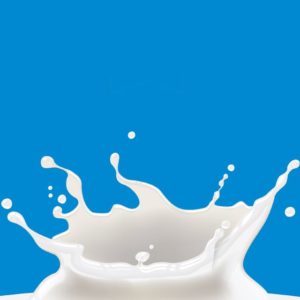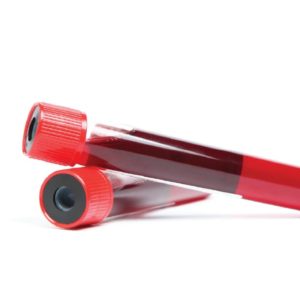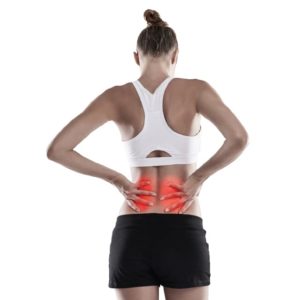Q. When I leave practice at the end of the day my muscles feel like jelly. How can I tell the difference between stress that will make me stronger and stress that could be damaging?
A. You’re right – some microtrauma is necessary for muscle growth and development. However, if your soreness lasts more than a few days and/or
doesn’t improve with rest, you could have injured the muscle group or joint. Anytime we force our muscles to work harder than they normally do, or begin to use them in a new way, we cause microscopic tears to the muscles and surrounding connective tissue. The muscle soreness and stiffness that follows is called delayed-onset muscle soreness, or DOMS for short, and it’s an inflammatory response. DOMS is a normal physiological response that occurs within the first few days after exercise. However, if it’s extreme or simply won’t go away, you may have caused an injury. It’s great that you are working hard at your sport! Just don’t push through any pain that causes you to limp or changes your mechanics, and don’t plan to beat your own personal record at the beginning of the season.


Q. I just had a hip replacement and my doctor suggested I follow up with hydrotherapy. What does that involve and how can it help?
A. Hydrotherapy is a type of physical therapy that takes place in water. You will be instructed to walk on an underwater treadmill or perform various exercises in the comfort of a temperature controlled environment. Pools are equipped with hydro-jets that agitate the water to promote increased circulation – and these are an option commonly used during therapy. Hydrotherapy is a great option for people like yourself who want to speed up recovery without putting too much pressure on your joints. Hydrostatic pressure, or the pressure exerted by the water itself, will help increase your circulation – which in turn, will help you rebuild strength at a faster rate. Additionally, muscle strengthening movements can be made without pain, since the buoyancy of the water allows you to experience as much as 75% weightlessness. Overall, patients who undergo hydrotherapy tend to have higher rates of compliance during rehabilitation, faster recovery times, less pain, and lower risk of falls and further injury as they recover.




Q. Is goat milk or goat cheese safe for my infant daughter with a dairy allergy?
A. Now that’s a great question! The answer, unfortunately, is no: goat’s milk is not a safe alternative to cow’s milk. The two milks have a similar protein structure, so the potential for cross reactivity is high. In fact, more than 90% of dairy allergy patients will have a cross reaction to goat’s milk. For infants with dairy allergy, several milk alternatives offer a safer way to meet nutritional needs for protein and fat. Depending on your daughter’s allergic profile, she may be able to drink a soy-based formula. If she’s allergic to soy too, a good option could be a hydrolyzed formula, in which the cow’s milk protein is broken down extensively, making it less recognizable to the immune system. In either case, I recommend taking your daughter to a board-certified allergist for formal food allergy testing. An allergist can determine the degree of her dairy allergy and check to see if she is allergic to soy.


Q. My son tore his ACL for the second time and is out of soccer for the season – and maybe, he thinks, forever. What can I do to help him cope with this blow?
A. You can help your son increase his resilience in several ways. First, be empathetic to his loss. Help him express his feelings — listen to them and acknowledge them. Second, encourage him to talk to others who can offer accurate information about his injury, healing, and rehabilitation. As he begins rehabilitation, empower him to be an active participant in goal setting. The truth is, his own athletic qualities – such as precision performance, visual imagery, etc. – can assist him greatly as he rebuilds strength. If your son has suddenly been removed from his team, understand he may experience the effects of social isolation. Encourage him to stay engaged with the team while building other interests and social opportunities. Finally, if you notice changes like depression, substance use/abuse, difficulties with eating or sleeping, or statements like “I don’t know what I will do without soccer,” gently steer him towards counseling. It will likely be up to you, the coach, and his rehabilitation team to give him permission to seek help, rather than “tough it out.” Help him understand that his new troubles are tied to the loss, and that support from an appropriate mental health provider can offer relief.



Q. I’m over 65 and often suffer from fatigue and low energy. I’m wondering if I may be anemic. What should I do?
A. Your fatigue may well be from anemia, but it could also be from hypothyroidism, heart or lung problems, or even from being out of shape. The first thing to do is to check in with your primary care provider. He or she can do a thorough history and exam and order blood tests to check your blood count, electrolytes, and kidney and thyroid functions. If these don’t reveal why you’re so tired, then your doctor may order further testing based on your health history. If you have smoked, your doctor may order a chest X-ray or a breathing test (spirometry). If you suffer from hypertension, have high cholesterol, or have a strong family history of heart disease, your doctor may order an EKG or cardiac ultrasound. If you snore or usually wake up tired, he or she may do a sleep apnea test. It’s impossible to know whether your fatigue is from anemia or another cause without more information – so don’t hesitate to call and make an appointment. I hope this gives you a good idea of what to do next!




